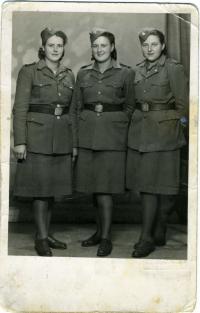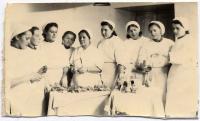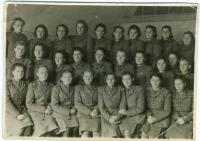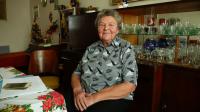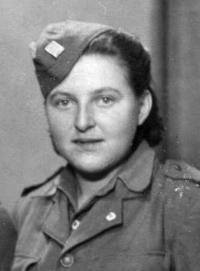I pray for everyone to be healthy and happy For my grandchildren to do well at school and for me to be here with them for a few more years

Download image
Emílie Závodská was born on 2. January in the village of Hulcze, Volhynia, Poland. She grew up in the family of a farmer Josef Kudrna, she had two sisters. She had good childhood, though she had to help with the work on the farm. From September 1939 her home village was occupied first by Russians then by Germans and after them Russians came again. In summer 1941 Germans were going through their village during their invasion into The Soviet Union. Before Emílie Závodská joined the The First Czechoslovakian Army, she worked in an illegal organisation Blaník. She helped to guard and protect the village from „banderovci“ bandit groups who were stealing everything they could find. (We used to sleep in a loft, sometimes several families together. Downstairs we left it for „banderovci“ to take everything they wanted but to spare us.) In the year 1944 together with her father she entered The First Czechoslovakian army and took a medical course in Kiev. She spent there four months in hospital and at the end of the course she passed an exam. After the exam she returned home. In January 1945 she was allocated to 3. ambulance battalion where she worked until the end of the war. In 1945 in the hospital she also met her husband, who was a patient there. She did not return to Volhynia after the war, she settled in Bohemia and her parents and her both married sisters joined her there. For most of her professional life she worked as a caretaker in The House of Pioneers in Teplice. She married Jakub Závodský (died in 1993) and they have two children.
